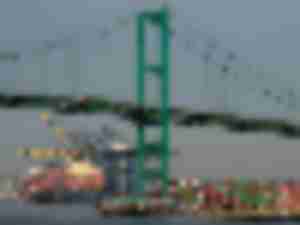Ground under proposed Oakland A’s ballpark site on Howard Terminal “liquified” in 1989 earthquake
Proposed Oakland A’s Howard Terminal ballpark and condo site hit by liquefaction event during 1989 earthquake. Report fails to mention event.
COVID-19: Largest supply chain effort ever undertaken
AEB is another software provider with deep ties to global trade and logistics.
Oakland’s Proposed New Ballpark and Condo complex “Long-Term Threat” to Port
PMSA’s Jacob Warns Oakland A’s Howard Terminal Ballpark and Condos Pose “Long-Term Threat” to Port of Oakland Maritime Operations
House Republicans and Democrats Voice Concerns to FMC That Ocean Carriers Decline to Ship U.S. Agriculture Exports
On March 9th, a group of Democratic and Republican Congressional representatives led by John Garamendi (D-CA) and Jim Costa (R-CA) announced that they authored a bipartisan letter to Michael A. Khouri, chair of the Federal Maritime Commission (FMC), voicing concern over reports that certain vessel-operating common carriers (VOCCs) are declining to ship U.S. agricultural commodity exports from U.S. ports.
Northwest Seaport Alliance volumes up 9% in January
Northwest Seaport Alliance (NWSA) CEO John Wolfe reported March 3rd that container freight volumes rose by 9% in January 2021 compared to January 2020 totaling 288,289 TEUs. NWSA CEO John Wolfe expects strong first half of 2021.
GSC Logistics’ Arsenault hails CMA CGM’s first port of call at Oakland
The decision by French ocean carrier CMA CGM to make the Port of Oakland its first port of call in a new service from Asia is a reflection of importers and exporters developing new markets closer to their customers: “First-call status demonstrates the market is viewing the Port of Oakland more strategically which will attract increased cargo volumes,” says GSC Logistics Harbor Trucking President Dave Arsenault.
Ports of LA and Long Beach: Can Clean Air Action Plan transition harbor trucks to zero emissions by 2035?
At the ports of Los Angeles and Long Beach, surging imports have left boxships awaiting berths and they are piling up like cars on the LA freeway at rush hour. However, new investments in electrical cargo-handling and electric trucks could streamline port operations, reduce emissions and lower costs. The Southern California ports plan to transition all diesel trucks working the ports to zero emissions within fourteen years. Can the goal of zero emissions really be achieved?
2020: The year of living virtually
For those in international shipping and trade, 2020 became the Year of Living Virtually as dozens of conferences and trade shows eschewed cancelling due to pandemic travel restrictions and opted for going digital. And the WCA World, a networking association of independent international freight forwarders, has taken this online technology one step farther, opening up a glimpse into a virtual world once imagined as science fiction rather than an everyday reality.
Ports of LA and Long Beach: Can clean air action plan revolutionize port operations?
On February 4th at the Port of Long Beach State of the Port address, Mario Cordero, executive director of the Port reported that 15% of Long Beach operations are zero emissions and electrical. And Cordero emphasized he was confident that the Ports of Long Beach and Los Angeles would meet their Clean Air Action Plan (CAAP) goals of zero emission cargo-handling equipment in 2030 and zero emission harbor trucks in 2035. But it could be a race against the clock as currently only about 7% of the cargo-handling equipment in the Port of Los Angeles and 15% in Long Beach is fully electrical.
Port of LA’s Seroka reports 5.5% increase in January imports but congestion continues
At his February 17th media briefing Gene Seroka, executive director, Port of Los Angeles reported that in January 2021, the Port recorded the following container movements:
• Imports increased 5.5% over January 2020 with 437, 609 loaded TEUs
• Exports declined by 19.5% to 119, 327 TEUs
• Empty containers rose 14.5% to 278, 580 over January 2020
© Copyright 1999–2025 American Journal of Transportation. All Rights Reserved










